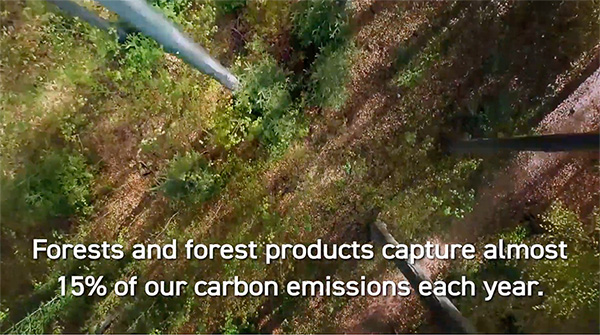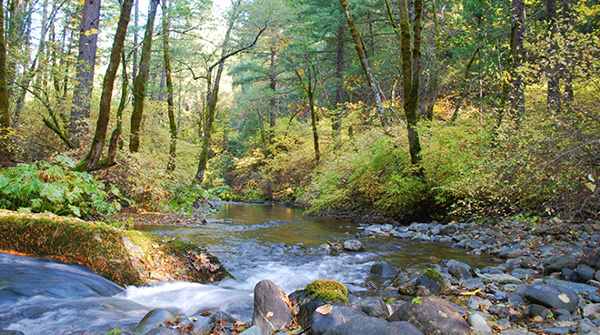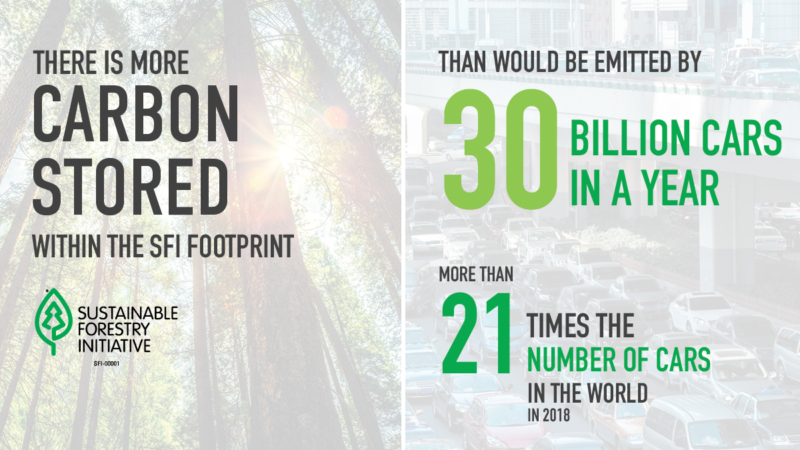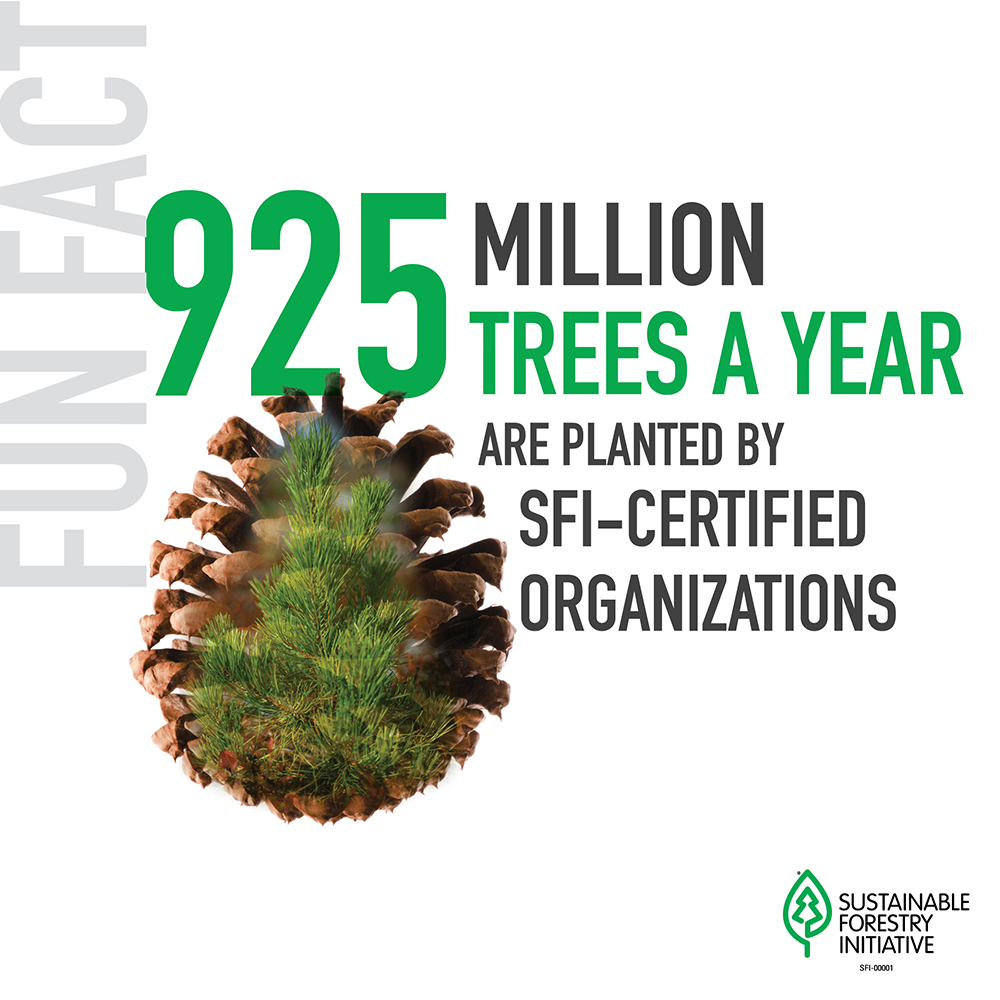CLIMATE CHALLENGE
FIGHT CLIMATE CHANGE? CHOOSE SUSTAINABLE FOREST PRODUCTS.
Climate change is one of our most pressing global challenges, and sustainably managed forests are among our most important tools for addressing it. Over 350 million acres/140 million hectares of forestland are certified to the SFI Forest Management Standard. Sustainably managed forests at this scale absorb carbon at impressive rates, making them essential to reducing the impacts of climate change. A recently completed study of SFI-certified forestlands in the United States indicates that SFI‑certified forests sequester more than 20 billion tons of carbon and capture about 235 million tons of carbon each year, underscoring their value in fighting climate change.
Certification is the best way to ensure that a forest is sustainably managed. Vigorous and healthy forests that are sustainably managed are more resilient to the impacts of climate change. A highlight of the new SFI standards is the SFI Climate Smart Forestry Objective, which requires SFI-certified organizations to ensure forest management activities address climate change adaptation and mitigation measures.
Sustainably managed forests also produce wood products that sequester carbon for extended periods—often decades. SFI-certified wood products can replace the use of more carbon-intensive products like concrete and steel. That means sustainably managed forests fight climate change while they’re growing—and long after they’re harvested.
Companies are helping to mitigate climate change through the use of SFI standards. The SFI Forest Management Standard requires a number of practices with direct climate benefits, such as ensuring forests remain vigorous and healthy, requiring harvested areas to be promptly reforested, and requiring programs and practices that reduce the likelihood of wildfire and reduce the spread of damaging invasive species.
Vigorous and healthy forests are also resilient to threats such as fire and pests. Forest fires have long played a role in the evolution and function of natural ecosystems, but we are now seeing an increase in catastrophic fires that have dire consequences for our forests, wildlife, and communities. More than a billion acres/400 million hectares are at risk of fire each year in the U.S. In Canada, an average of about 2.5 million hectares/6 million acres of land burn every year. SFI provides practical solutions that can reduce the potential for damaging wildfires through careful management including a new SFI Fire Resilience and Awareness Objective. SFI-certified organizations will be required to limit susceptibility of forests to undesirable impacts of wildfire and to raise community awareness of fire benefits, risks, and minimization measures.
SFI is the only forest certification standard to require certified organizations to support research on forest sustainability. Since 1995, SFI-certified companies have directly invested nearly $1.8 billion in forest research that promotes resilient, sustainably managed forests.
Climate change is impacting all types of communities, including urban areas. But trees and forests cool cities and help clean the air, making cities healthier and more livable. Trees are vital to the health, wealth, and climate resiliency of all people who live in cities. A new SFI Urban and Community Forest Sustainability Standard, developed in collaboration with five urban forestry leaders including American Forests, Arbor Day Foundation, the International Society of Arboriculture, the Society of Municipal Arborists, and Tree Canada, helps focus SFI’s work on urban and community forests.













